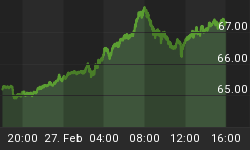After a month of fabulous sales, could the toilet paper industry now be facing a threat it had not anticipated? This and many other lifestyle questions will now be nagging at a number of industries as coronavirus safety practices make everything think twice about things they do every day.
When the American public first became fearful of the coronavirus and began to take it seriously, toilet paper was--oddly--the first thing everyone decided to stock up on. This says a lot about our culture of comfort.
The run on toilet paper had nothing to do with supply. It was similar to a panicked run on a bank. It was a self-fulfilling prophecy.
Due to those toilet paper shortages, another prophecy is unfolding: A surge in sales of bidets’, a water-jet alternative to toilet paper, popular in bathrooms across Europe and the Middle East.
In fact, U.S. bidet manufacturers have seen a spike in sales of around 300%.
Thus, something that is already a norm in Europe and the Middle East, and something that is arguably more intelligent--and indeed, more hygienic--than toilet paper may now be taking hold in America. And it won’t be temporary. Once you buy a bidet, you have a bidet--forever.
The pandemic will eventually end, but it will very likely change how we work, travel, eat, shop, educate ourselves and practice hygiene, for years to come.
Socio-behavior change often occurs in sudden shocks such as armed conflict, weather-related disasters or pandemic. And it fundamentally reshapes some areas of how we live our life, either by being forced into it or by our own choosing. And more often than not, forced into it or not, it becomes a habit rather quickly.
The generation who grew up during the Great Depression, lived under a “waste not, want not” mantra and practically started recycling even before it became fashionable
So, how are we adjusting to the ongoing Coronavirus pandemic
We are bound to waste less. Food, even if not in shortage, becomes more precious because trips to the store are a minimum. Grocery delivery could become habitual long after it is no longer necessary.
All those unbelievers who signed up for Shipt, Instacart, Postmates or the like only because of the coronavirus may keep their accounts open after the pandemic.
Walmart Grocery’s delivery app has seen downloads surge 218%. Target’s Shipt has seen a 160% boost, Instacart downloads are up 124%, according to Business Insider. And that’s just between February 15th and March 15th.
Amid the stock-up flurry, things like milk alternatives are also seeing sales increases of over 440%, and it may end up being a habit that’s not kicked.
As for bidets, that’s a habit that the environment would thank us for.
The initial toilet paper rush has left many without, and that is leading to other environmental problems and panic among city utilities because people are desperately flushing things they shouldn’t flush--including wet wipes and even T-shirts, apparently.
But even prior to these severe wastewater plant issues, toilet paper was a dark spot on our environmental footprint.
CEO of the millennial bidet company Tushy, Jason Ojalvo, tells the New York Post that in the month of March his company has seen profits increase tenfold.
It’s a habit that can easily catch on when you consider that you can turn your toilet into a bidet for less than $100. That makes the bidet no longer an “elite” product, but a money-saving eco-friendly device that defies the toilet paper shortage.
By Josh Owens for Safehaven.com
More Top Reads From Safehaven.com:
















